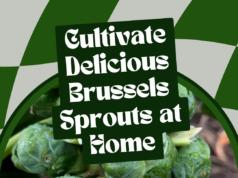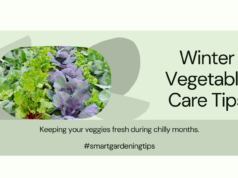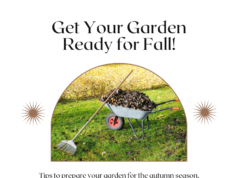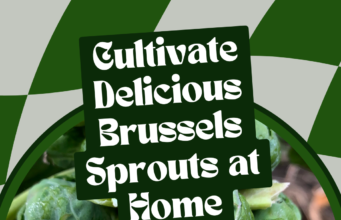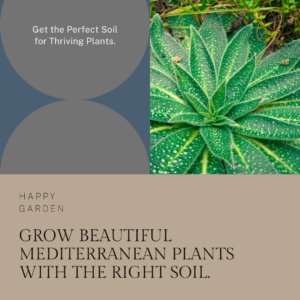
Welcome to our insightful guide on selecting the right soil for your Mediterranean plants. The key to successful gardening lies in understanding the unique needs of your plants and providing them with an ideal growing environment. In this article, we will explore the importance of choosing the right soil and its impact on plant growth. We’ll delve into the different soil types that thrive in Mediterranean climates and offer tips on improving soil quality. By the end, you’ll be equipped with the knowledge to create a flourishing Mediterranean garden that will delight the senses.
Key Takeaways:
- Choosing the right soil is crucial for the health and vitality of Mediterranean plants.
- Understanding the factors that influence plant growth in Mediterranean climates is essential for selecting the appropriate soil type.
- Sandy soil, loamy soil, and clay soil each have unique characteristics that impact plant growth.
- Improving soil quality through organic matter and proper irrigation techniques is key to successful gardening in Mediterranean climates.
- Consider important factors like drainage, moisture retention, pH levels, and nutrient content when choosing soil for Mediterranean plants.
Factors Influencing Plant Growth in Mediterranean Climate Regions
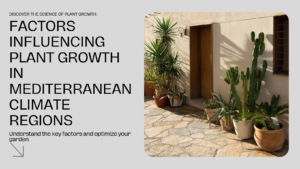
Before delving into different soil types, it’s crucial to understand the factors that impact plant growth in Mediterranean climate regions. These regions, characterized by high temperatures, limited rainfall, and dry summers, pose unique challenges for plant survival. By considering these factors, you can make informed decisions about the type of soil that best suits the needs of your Mediterranean plants.
In Mediterranean climate regions, the combination of high temperatures and limited rainfall creates a dry and arid environment. This makes water availability a critical concern for plant growth. Drought resistance is a key characteristic to look for when selecting plants that can thrive in these conditions.
In addition to water scarcity, high temperatures can exert additional stress on plants. Mediterranean plants often have adaptations such as small leaves or thick waxy coatings that help them conserve water and tolerate extreme heat. When choosing soil for these plants, it’s essential to consider its ability to retain moisture, as well as its capacity to insulate and protect roots from heat stress.
Furthermore, the dry summers experienced in Mediterranean climate regions can result in moisture deficits in the soil. This can affect nutrient availability and uptake for plants. Therefore, selecting soil that can retain nutrients and provide a fertile environment is crucial for the sustained growth and health of Mediterranean plants.
Understanding the factors that influence plant growth in Mediterranean climate regions allows you to make informed decisions when selecting the appropriate soil. By choosing soil that can mitigate the effects of high temperatures, limited rainfall, and dry summers, you can create a favorable environment for your Mediterranean plants to thrive.
Importance of Selecting the Right Soil for Mediterranean Plants
When it comes to growing Mediterranean plants, selecting the right soil is crucial for their health and vitality. The soil you choose can greatly influence the growth and well-being of your plants, playing a key role in their ability to thrive in your garden.
There are several reasons why it is important to carefully consider the soil you use for your Mediterranean plants. Firstly, the soil’s ability to retain moisture is vital in regions with limited rainfall and dry summers. Mediterranean plants have adapted to thrive in arid conditions, so it’s essential to choose soil that can help them maintain adequate hydration.
Another important aspect to consider is the soil’s ability to promote root development. Healthy root systems are crucial for the overall growth and stability of plants. By selecting soil that provides optimal conditions for root development, you can ensure that your Mediterranean plants establish strong and robust root systems.
Furthermore, the right soil can provide essential nutrients to support the growth and nutrition of your plants. Mediterranean plants have specific nutrient requirements, and choosing soil that is rich in organic matter and nutrients can provide them with the nourishment they need to flourish.
“The soil is the foundation for your plants. By selecting the right soil, you are setting the stage for success in your Mediterranean garden.”
Understanding the importance of selecting the right soil lays the groundwork for the following sections, where we explore specific soil types suitable for Mediterranean plants. By having a solid foundation of knowledge about soil selection, you’ll be equipped to make informed decisions and create the optimal growing environment for your beloved Mediterranean plants.
In the next section, we will take a closer look at sandy soil, its specific characteristics, and the advantages it offers for Mediterranean plant growth.
Sandy Soil: Characteristics and Advantages
Sandy soil, commonly found in Mediterranean regions, possesses unique characteristics that make it well-suited for certain plants. Its coarse texture, excellent drainage, and quick warming capability set it apart from other types of soil. Understanding the characteristics and advantages of sandy soil will allow you to make an informed decision when selecting soil for your Mediterranean garden.
Characteristics of Sandy Soil
Sandy soil is characterized by its:
- Coarse texture
- Large particles
- Low water retention
- Good drainage
- Quick warming capability
The coarse texture of sandy soil allows for better air circulation and root penetration. This enables plants to establish strong root systems and access oxygen more efficiently. The large particles of sandy soil also contribute to its excellent drainage, preventing waterlogging and reducing the risk of root rot. Additionally, sandy soil warms up more quickly than other soil types, which can benefit heat-loving Mediterranean plants.
Advantages and Disadvantages of Sandy Soil
Advantages of sandy soil include:
- Good drainage
- Warms up quickly
- Allows for better root development
However, sandy soil also has the following disadvantages:
- Low water retention
- Poor nutrient retention
The excellent drainage of sandy soil prevents excessive water accumulation and promotes healthy root growth. Its ability to warm up quickly can be particularly advantageous for plants that thrive in warm climates, such as many Mediterranean plant species. However, sandy soil’s low water retention can pose challenges in dry climates or during periods of limited rainfall. Additionally, sandy soil may require more frequent watering and regular supplementation with organic matter to enhance nutrient retention.
Loamy Soil: Characteristics and Benefits
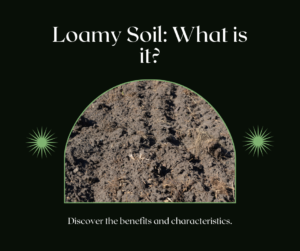
Loamy soil is considered ideal for many Mediterranean plants due to its balanced composition of sand, silt, and clay. This type of soil offers several characteristics that contribute to optimal plant growth and health.
One of the key characteristics of loamy soil is its ability to retain moisture. The combination of sand, silt, and clay allows the soil to hold water without becoming waterlogged, providing a consistent source of hydration for your Mediterranean plants.
Additionally, loamy soil offers good drainage, preventing excess water from pooling around the roots. This helps to prevent root rot and other water-related issues that can harm plant health.
Furthermore, loamy soil provides a nutrient-rich environment. The organic matter in the soil helps to hold essential nutrients, making them readily available to the plants’ roots. This promotes healthy growth and vibrant foliage.
The benefits of loamy soil for Mediterranean plants include:
- Optimal moisture retention
- Effective drainage
- Nutrient-rich composition
- Promotion of healthy growth and vibrant foliage
By utilizing loamy soil in your garden, you can maximize the growth and health of your Mediterranean plants, ensuring they thrive in their natural environment.
| Characteristics | Benefits |
|---|---|
| Retains moisture without becoming waterlogged | Consistent hydration for plants |
| Provides good drainage | Prevents water-related issues and root rot |
| Offers a nutrient-rich environment | Promotes healthy growth and vibrant foliage |
Clay Soil: Characteristics and Challenges
When it comes to Mediterranean plant growth, clay soil presents unique challenges due to its heavy texture and poor drainage. Understanding the characteristics and challenges of clay soil is crucial in creating an optimal environment for your plants to thrive.
Clay soil is known for its ability to retain water and nutrients, which can be both advantageous and problematic for Mediterranean plants. The high water-holding capacity of clay soil ensures that your plants won’t quickly dry out, but excessive moisture can lead to root rot and poor aeration.
In addition to its water-retention properties, clay soil also tends to be rich in minerals and nutrients, which provides a fertile ground for plant growth. However, the heavy texture of clay soil can easily become compacted, making it difficult for plant roots to penetrate and causing poor root development.
To overcome the challenges presented by clay soil, there are several strategies you can implement in your Mediterranean garden:
- Improve drainage: Enhance the drainage of clay soil by incorporating organic matter, such as compost or peat moss, into the soil. This will help break up the compacted clay and promote better water flow.
- Amend with sand: Mixing coarse sand or gravel into clay soil can improve its overall structure and drainage. Aim for a ratio of 1 part sand to 3 parts clay soil.
- Practice mulching: Apply a layer of organic mulch, such as wood chips or straw, to the surface of the soil. This will help regulate soil temperature, reduce moisture evaporation, and prevent compaction.
- Rotate and diversify: Consider rotating your crops and introducing plants that are tolerant of clay soil. Diverse plantings can help break up the soil and improve its structure over time.
By implementing these strategies, you can manage the challenges posed by clay soil and create a healthier growing environment for your Mediterranean plants.
Comparison of Soil Types in Mediterranean Gardens
| Soil Type | Characteristics | Advantages | Disadvantages |
|---|---|---|---|
| Sandy Soil | Coarse texture, good drainage | Warm up quickly, easy to work with | Low nutrient content, prone to drought |
| Loamy Soil | Well-balanced composition, retain moisture | Good drainage, nutrient-rich | Potential compaction, requires regular maintenance |
| Clay Soil | Heavy texture, poor drainage | Retains water and nutrients, fertile | Compacts easily, limits root development |
Improving Soil Quality for Mediterranean Plants
Regardless of the soil type you have, improving its quality is key to nurturing thriving Mediterranean plants. By incorporating organic matter, composting, and employing proper irrigation techniques, you can create an optimal growing environment and support the health of your Mediterranean plants.
Enhancing Soil Quality with Organic Matter
One effective method to improve soil quality is by incorporating organic matter. Organic matter, such as compost, animal manure, or leaf mulch, enriches the soil with essential nutrients and improves its structure. By adding a generous layer of organic matter to the topsoil, you provide a favorable environment for beneficial soil organisms, such as earthworms and bacteria, to thrive. These organisms help break down organic matter, release plant-available nutrients, and improve soil aeration and drainage.
Utilizing Composting for Soil Enrichment
Composting is a natural and cost-effective way to enrich your soil. By collecting kitchen scraps, yard waste, and other organic materials and letting them decompose in a compost bin or pile, you can create nutrient-rich compost. Incorporating this compost into your garden beds or mixing it with existing soil provides a steady supply of organic matter, enriches the soil with nutrients, and enhances moisture retention. Composting also reduces the amount of waste sent to landfills and promotes sustainable gardening practices.
Implementing Proper Irrigation Techniques
Proper irrigation is crucial for improving soil quality in Mediterranean gardens. By ensuring that plants receive adequate, but not excessive, water, you can prevent waterlogging and root rot while promoting deep root growth. Consider incorporating drip irrigation systems or soaker hoses, which deliver water directly to the plant’s root zone, minimizing water loss through evaporation and runoff. Additionally, watering your plants deeply and infrequently encourages roots to grow deeper into the soil, improving nutrient uptake and overall plant health.
By implementing these strategies to improve soil quality, you can create a nourishing environment for your Mediterranean plants to thrive and flourish.
Composting and Organic Matter as Soil Amendments
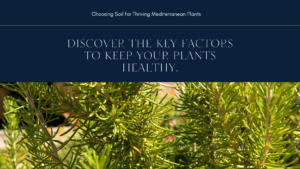
Composting and incorporating organic matter into your soil can have a remarkable impact on enhancing its quality. In this section, we will explore the benefits of composting and the different types of organic matter that can be used as soil amendments in your Mediterranean garden. By implementing these practices, you can enrich the soil and provide an optimal environment for your plants to thrive.
The Benefits of Composting
Composting is a natural process that converts organic waste into nutrient-rich material known as compost. This remarkable soil amendment offers several advantages for your Mediterranean garden:
- Enhanced Soil Structure: Compost improves soil structure by promoting better water retention and aeration. The organic matter in compost helps bind sandy soil particles together and allows clay soil to become more porous, creating a well-balanced environment for plant roots to grow.
- Increased Nutrient Availability: Compost acts as a slow-release fertilizer, providing essential nutrients to your plants over time. The rich organic matter in compost supplies a wide range of nutrients, including nitrogen, phosphorus, potassium, and a variety of micronutrients, ensuring the healthy growth and development of your Mediterranean plants.
Creating your own compost is easy and eco-friendly. You can start by collecting kitchen scraps, yard waste, and other organic materials in a compost bin or pile. Over time, microorganisms will break down these materials into nutrient-rich compost that you can incorporate into your soil.
Types of Organic Matter for Soil Amendments
Aside from compost, other types of organic matter can be used as soil amendments to further improve its quality. Here are some common options:
- Well-Decayed Manure: Manure from herbivorous animals, such as cows, horses, or chickens, can be an excellent source of organic matter. Make sure to use well-decomposed manure to avoid burning the roots of your plants.
- Leaf Mold: Leaf mold refers to decayed leaves that have broken down into a crumbly, soil-like substance. It is rich in organic matter and contributes to soil structure and nutrient content.
- Green Manure: Green manure crops, such as clover, vetch, or rye, are grown specifically to be tilled into the soil and improve its fertility. These cover crops add organic matter, nitrogen, and other nutrients to the soil as they decompose.
To incorporate these organic amendments into your soil, spread them evenly across the top and gently mix them in using a garden fork or tiller. This will ensure that the organic matter is distributed throughout the soil, providing maximum benefits to your Mediterranean plants.
Remember, composting and organic matter amendments are ongoing processes. Regularly adding compost and organic materials to your soil will provide continued nourishment and improvement. Embrace the power of nature’s recyclers and watch as your Mediterranean garden thrives.
Key Factors to Consider When Choosing Soil for Thriving Mediterranean Plants
When it comes to selecting soil for your Mediterranean plants, there are several key factors that you need to take into consideration. By understanding these factors and making an informed decision, you can create the optimal conditions for your plants to thrive. Let’s explore these essential considerations:
1. Drainage
Proper drainage is crucial for Mediterranean plants. They prefer soil that allows excess water to flow through, preventing waterlogging and root rot. Sandy or loamy soil types are ideal for achieving good drainage, ensuring the health and longevity of your plants.
2. Moisture Retention
While Mediterranean plants are adapted to drought conditions, they still require adequate moisture to grow and flourish. Choosing soil that retains some moisture will provide your plants the hydration they need in hot and dry climates. Loamy or clay soil with good water-holding capacity is a great option.
3. pH Levels
The pH level of the soil can significantly influence the nutrient availability for your Mediterranean plants. Most prefer slightly acidic to neutral soil with a pH range of 6.0 to 7.0. Conducting a soil test can help you determine the pH level and make any necessary adjustments to create an optimal growing environment.
4. Nutrient Content
Mediterranean plants require specific nutrients for healthy growth. Prioritize soil that is rich in organic matter and contains essential nutrients such as nitrogen, phosphorus, and potassium. Adding compost or organic amendments can significantly improve the nutrient content of your soil, providing a nourishing foundation for your plants.
By considering these key factors when choosing soil for your Mediterranean plants, you can create the perfect growing environment and ensure their thriving success in your garden.
Stay tuned for the next section, where we will explore practical recommendations for successful gardening in Mediterranean climate regions.
Recommendations for Successful Gardening in Mediterranean Climate Regions
Gardening in Mediterranean climate regions can be a rewarding experience. To help you create beautiful and thriving gardens in these regions, we have compiled a list of recommendations. By following these tips, you can ensure successful gardening in Mediterranean climate regions.
1. Choose Drought-Tolerant Plants
Given the limited rainfall in Mediterranean climates, it is crucial to select plants that are adapted to dry conditions. Choose drought-tolerant plants that have built-in mechanisms to conserve water, such as succulents, lavender, rosemary, and bougainvillea. These plants will thrive even during prolonged periods of heat and drought.
2. Implement Efficient Irrigation Methods
Efficient irrigation is key to maintaining plant health in Mediterranean climate regions. Consider drip irrigation systems that deliver water directly to the plant’s root zone and minimize water loss through evaporation. This method ensures efficient water usage and promotes deep root growth.
3. Practice Appropriate Mulching Techniques
Mulching plays a crucial role in Mediterranean gardening by reducing evaporation, suppressing weed growth, and maintaining soil moisture. Apply a layer of organic mulch, such as wood chips or straw, around your plants. This will help retain moisture in the soil and regulate temperature, creating a favorable environment for plant growth.
TIP: Be mindful of the type of mulch you use. Opt for organic mulch that will break down over time and add valuable nutrients to the soil.
4. Provide Adequate Drainage
Mediterranean plants thrive in well-drained soil. Ensure that your garden beds have good drainage by improving soil structure and adding organic matter. Consider using raised beds or incorporating sand or gravel into the soil to enhance drainage and prevent waterlogging.
5. Apply Organic Fertilizers
Organic fertilizers are beneficial for Mediterranean plants as they provide slow-release nutrients and improve soil health. Use compost, well-rotted manure, or organic fertilizer blends to enrich the soil and promote healthy plant growth. Avoid excessive use of synthetic fertilizers, as they can disrupt the natural balance of the soil.
6. Pay Attention to Plant Spacing
In Mediterranean gardening, proper plant spacing is essential for optimum air circulation and to prevent overcrowding. Follow the recommended spacing guidelines for each type of plant to ensure adequate airflow and minimize the risk of diseases. This will help your plants thrive and stay healthy.
7. Regularly Monitor Soil Moisture
Monitoring soil moisture levels is crucial for successful gardening in Mediterranean climate regions. Use a moisture meter or employ the finger test to determine if your plants require watering. Avoid overwatering, as it can lead to root rot and other issues. Instead, water deeply but infrequently to encourage deep root growth.
8. Choose Suitable Companion Plants
Companion planting is a valuable technique in Mediterranean gardening as it promotes diversity and helps deter pests naturally. Pair plants that have complementary growth habits and benefits. For example, planting aromatic herbs like basil and thyme alongside vegetables can help repel pests and enhance flavors.
By following these recommendations in your Mediterranean garden, you can create a thriving oasis even in challenging climates.
Enjoy the beauty and bounty that Mediterranean gardening has to offer!
FAQ
Q. What factors influence plant growth in Mediterranean climate regions?
A. The factors that influence plant growth in Mediterranean climate regions include high temperatures, limited rainfall, and dry summers. These factors should be considered when selecting soil for your Mediterranean plants.
Q. Why is selecting the right soil important for Mediterranean plants?
A. Selecting the right soil is crucial for the health and vitality of your Mediterranean plants. The right soil can retain moisture, promote root development, and provide essential nutrients, all of which are necessary for the plants to thrive.
Q. What are the characteristics and advantages of sandy soil for Mediterranean plants?
A. Sandy soil has a coarse texture, good drainage, and warms up quickly, making it suitable for certain Mediterranean plants. However, sandy soil may require more frequent watering and additional nutrient supplementation.
Q. What are the characteristics and benefits of loamy soil for Mediterranean plants?
A. Loamy soil, which consists of a balanced composition of sand, silt, and clay, is ideal for many Mediterranean plants. It retains moisture, provides good drainage, and offers a nutrient-rich environment for optimal plant growth.
Q. What are the characteristics and challenges of clay soil for Mediterranean plants?
A. Clay soil has a heavy texture and poor drainage, which presents challenges for Mediterranean plant growth. However, clay soil retains water and nutrients well. Strategies like amending the soil with organic matter can help manage clay soil in Mediterranean gardens.
Q. How can soil quality be improved for Mediterranean plants?
A. Soil quality can be improved for Mediterranean plants by incorporating organic matter, such as compost, into the soil. Composting enhances soil structure and increases nutrient availability, creating an optimal growing environment for your plants.
Q. What are the key factors to consider when choosing soil for thriving Mediterranean plants?
A. When choosing soil for Mediterranean plants, consider factors such as drainage, moisture retention, pH levels, and nutrient content. Taking these factors into account will help create the optimal conditions for your plants to thrive.
Q. What recommendations can you provide for successful gardening in Mediterranean climate regions?
A. To succeed in gardening in Mediterranean climate regions, select drought-tolerant plants, use efficient irrigation methods, and apply appropriate mulching techniques. These practices will help your garden thrive in the unique environmental conditions of the Mediterranean climate region.
Conclusion
In conclusion, selecting the right soil is crucial for the optimal growth and health of your Mediterranean plants. By understanding the characteristics and benefits of sandy soil, loamy soil, and clay soil, you can make an informed decision based on the unique needs of your plants.
Implementing strategies to improve soil quality, such as incorporating organic matter and proper irrigation techniques, will create an optimal growing environment for your Mediterranean garden. It is important to consider factors like drainage, moisture retention, pH levels, and nutrient content when choosing soil for your plants.
By following these guidelines and adopting recommended gardening practices, you can ensure the success of your Mediterranean garden and enjoy beautiful, thriving plants. So go ahead, get your hands dirty, and happy gardening!


